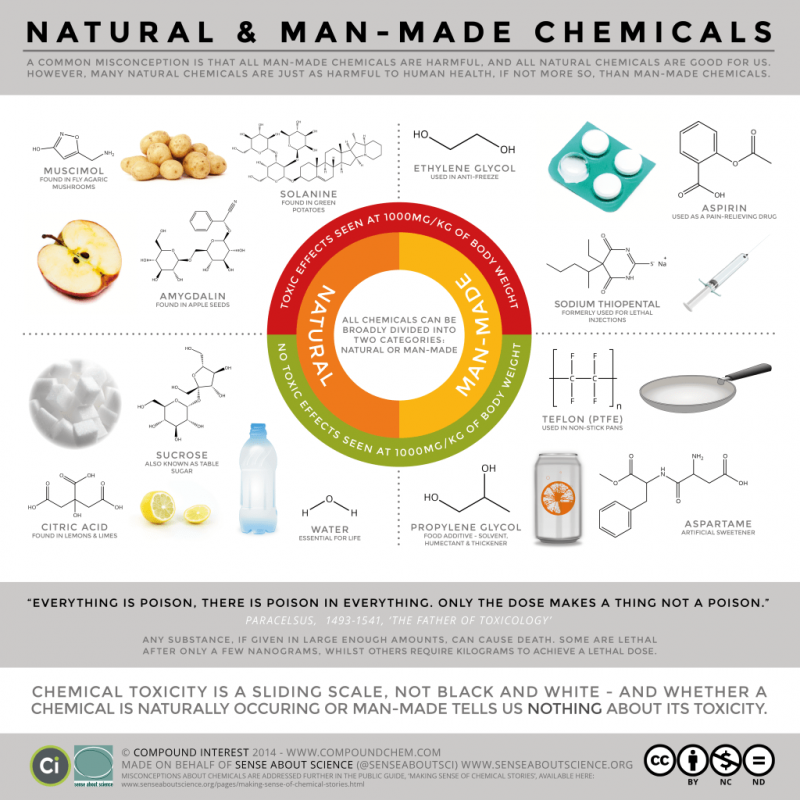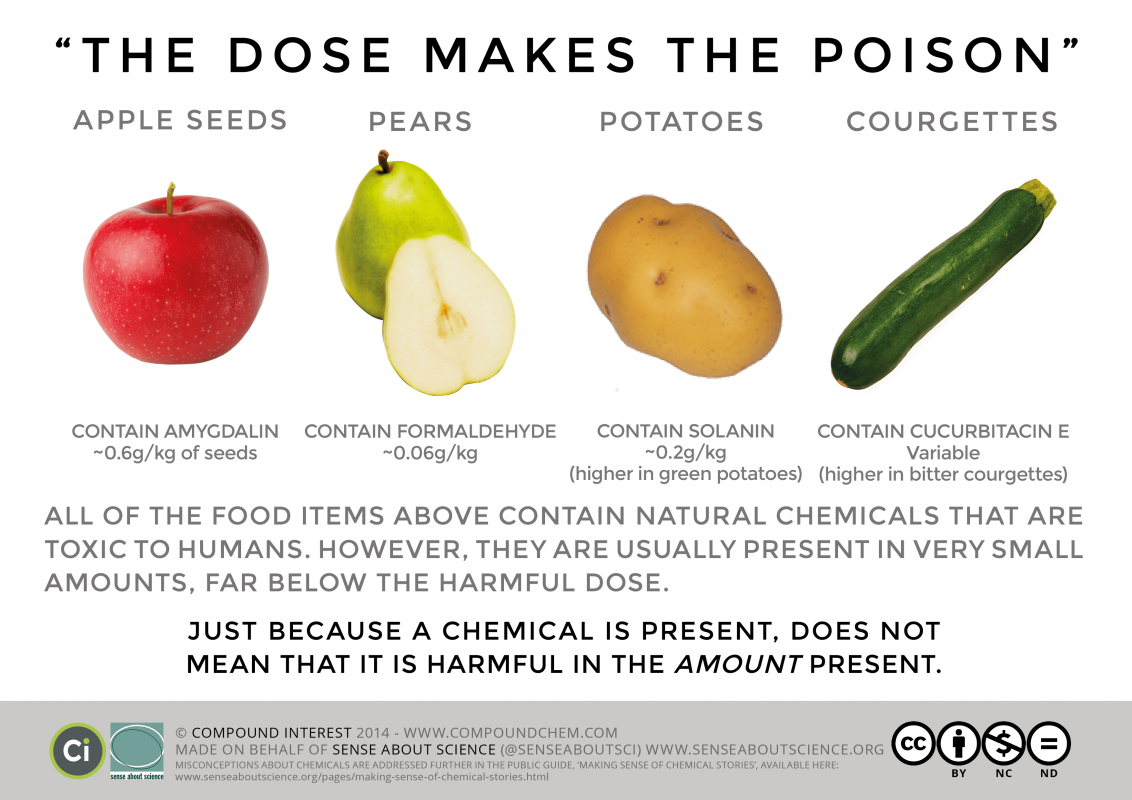Not all synthetic chemicals are bad.
Not all natural chemicals are good.
Let’s get these two simple lines right first. It’s my intention that I used the word chemicals after “natural” because there is a general misconception that natural substances are not chemicals. But everything is made of chemicals – the water you drink, the air you breathe, the phone you are using to read this, the clothes you are wearing, and even you yourself and any human on earth. Here is a little fun fact for you: according to the Royal Society of Chemistry, you would need £96,546.79 to obtain the necessary amounts of carbon, oxygen, hydrogen, calcium, phosphorus, potassium, and other elements required to create Benedict Cumberbatch. Yes, even Cumberbatch is made of chemicals, nothing more.
That’s why the first thing is to do the categorization correctly first: synthetic and natural not chemical and natural. Everything is made of chemicals: synthetic chemicals and natural chemicals.
Yet, I’m aware of the fact that in the popular perception, the terms chemical and poison have become interchangeable and for a person who studied chemistry for 10 years, it’s quite an unpleasant connotation.
Let me begin my rants (and excuse me doing so) by quoting the father of Toxicology, Swiss physician and chemist Paracelsus “The dose makes the poison.” It means that any chemical, even water and oxygen, when ingested or absorbed at the right amount or in other words, the right dose, can become toxic.

Some synthetic chemicals are harmful. Some are not. Some natural chemicals are safe. But some are not. It might surprise you that the most toxic chemical compound known to man is the naturally-occurring botulinum, one teaspoon of which could kill a quarter of the world’s population. There are still many other toxic natural chemicals too, such as mercury, snake venom, arsenic, and ricin from castor beans. But that doesn’t mean everything is toxic, it’s the dose that matters. Just because a chemical is present, doesn’t mean that it will cause any harm in the amount present.

What I am trying to do here is not to teach you a chemistry lesson which i believe Google can do a better job but to clear the name for man-made chemicals, and to help you avoid being misinformed in the vast sea of anti-chemicals propaganda and natural products advertisements. It’s important to know that not all natural products are safe and synthetic/artificial chemicals can be good too. However, the natural vs synthetic chemical debate is not a black vs white issue and any chemicals, whether natural or synthetic, need to be considered on a case by case basis before we can draw a conclusion.
I hope that this can help you re-evaluate biased claims about chemicals’ presence in foods and personal care products, become less worrisome of toxic chemicals and clear pre-conceived notions about natural and synthetic chemicals (if any). And most of all, KEEP CALM and ENJOY LIFE


 VI
VI